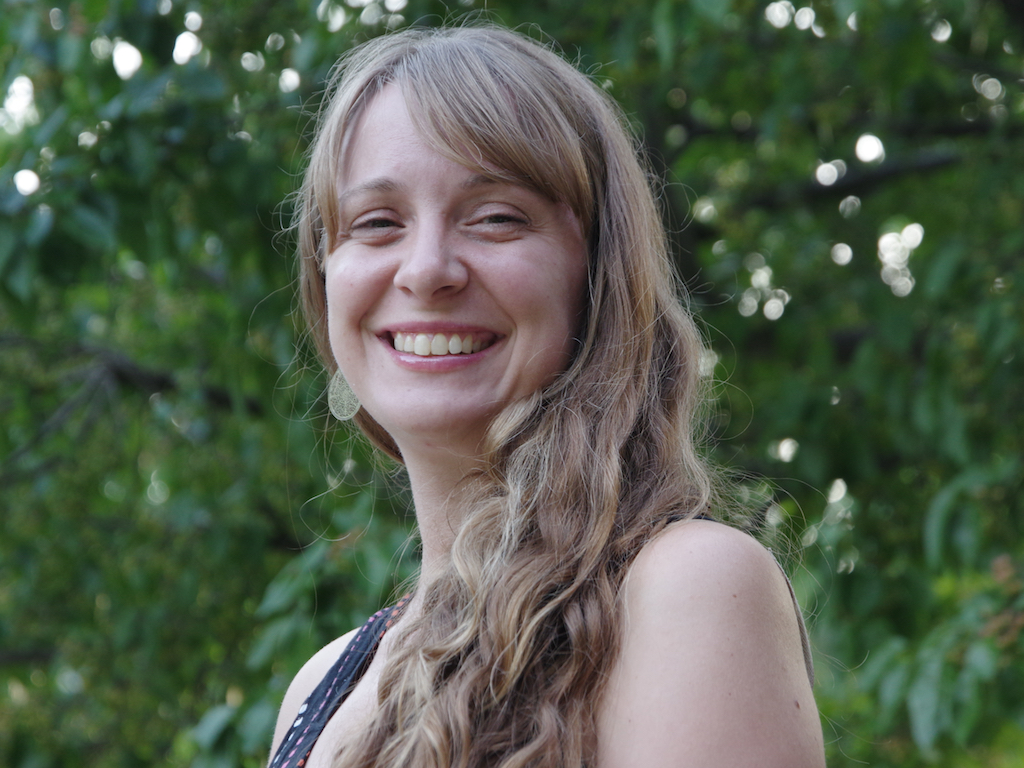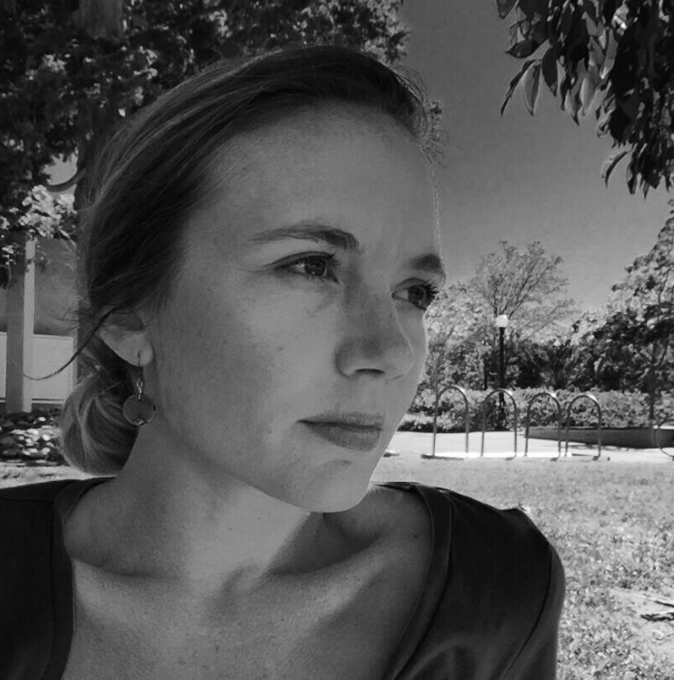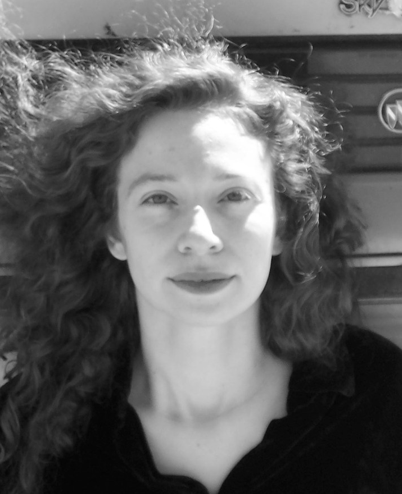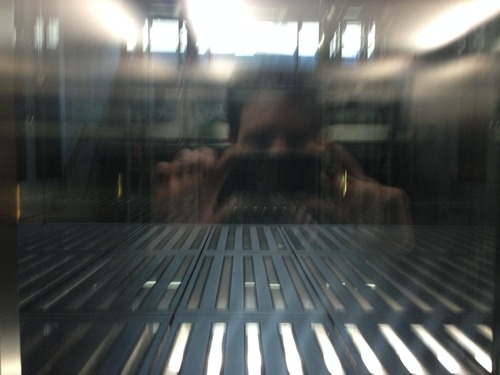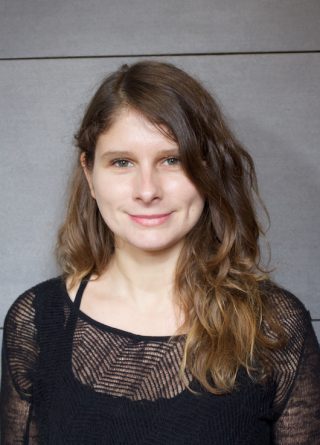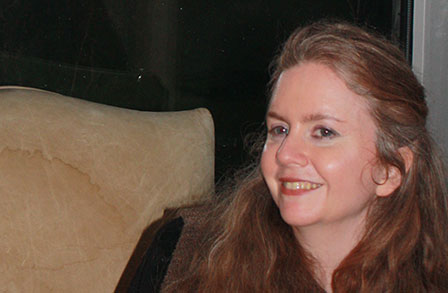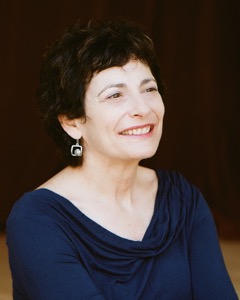Tupelo Press is especially delighted to announce that our judge, Tyehimba Jess, has selected Something Small of How to See a River by Teresa Dzieglewicz of Cumberland, Maryland as the winner of the 2021 Dorset Prize! Teresa will receive a $3,000 cash prize and a week-long residency at MASS MoCA worth $1,500 in addition to publication by Tupelo Press, 20 copies of the winning title, a book launch, and national distribution of her book. All manuscripts are judged anonymously.
Teresa Dzieglewicz is an educator, poet, and part of the founding team of the Mní Wičhóni Nakíčižiŋ Wóuŋspe (Defenders of the Water School) on the Standing Rock Reservation. She was named a Best New Poet of 2018, as well as the winner of the 2018 Auburn Witness Prize, a 2018 Pushcart Prize, and the 2020 Palette Poetry Prize. Teresa has been a fellow at New Harmony Writer’s Workshop, the Kimmel Harding Nelson Center, the NY Mills Arts Retreat, and Brooklyn Poets. She received her MFA from Southern Illinois University in Carbondale, where she was recognized with an Academy of American Poets Prize. Teresa’s poems can be found in Pushcart Prize XLII, Best New Poets, Beloit Poetry Journal, Prairie Schooner, Ninth Letter, Sixth Finch, and elsewhere.
Judge’s Citation
About Something Small of How to See a River, judge Tyehimba Jess writes:”Something Small of How to See a River‘ chronicles a vivid landscape of the struggle for sovereignty, dignity, and survival on the Standing Rock Reservation. The poet calls forth the full humanity of those standing in solidarity with the land and their children’s futures. The poet is smuggling a fresh groundwater swell of realfolk stories to testify alongside and against the sludge of headline misinformation, police reports, municipal records, and statistics. Working in the true sense of a liberatory project, here is honest, bracing news for the weary but unwavered.”
Our sincere congratulations to Teresa Dzieglewicz, and all our finalists and semifinalists.
Finalists for the 2021 Dorset Prize
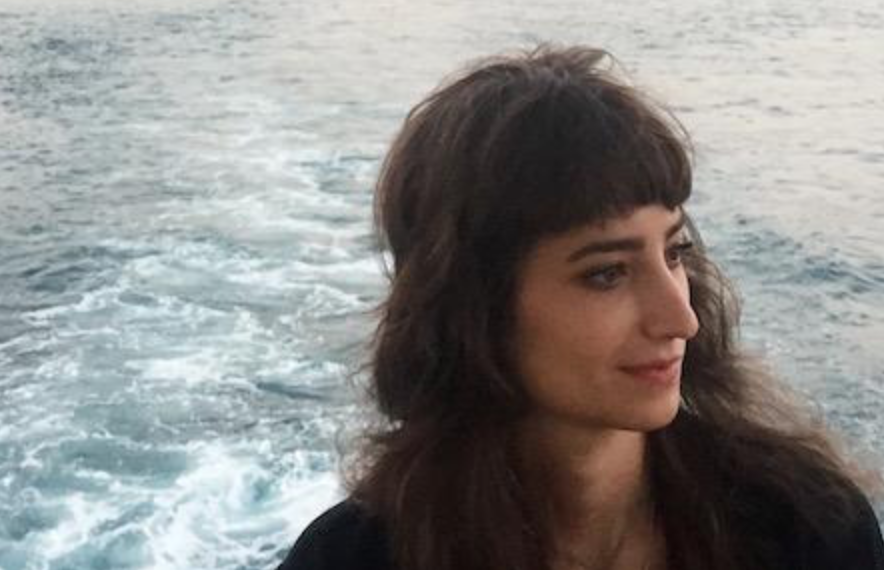
Sara Deniz Akant of Brooklyn, New York, The Kingdom Parihan
Turkish-American poet and performer Sara Deniz Akant was born and raised in New York. She is the author of Babette (Rescue Press, 2015), selected by Maggie Nelson; Parades (Omnidawn, 2014), selected by Gillian Conoley; and Latronic Strag (Persistent Editions, 2015). Her poetry has appeared most recently in the Bennington Review, Lana Turner, and the Brooklyn Rail.
Akant earned an MFA from the Iowa Writers’ Workshop and is a doctoral candidate in English at the CUNY Graduate Center. She has taught poetry at the University of Iowa, composition at Baruch College, and is currently an adjunct lecturer at Medgar Evers College. She has been the recipient of awards from the Academy of American Poets, and she has been an artist in residence at Yaddo, Art Farm, and MacDowell. Akant lives in Brooklyn.
Lucy Alford of Chicago, Illinois, Daylight / Savings
Lucy Alford’s first book, Forms of Poetic Attention (Columbia UP, 2020), examines the forms of attention both required and produced in poetic language, bringing both philosophical and cognitive inquiry into conversation with the inner workings of specific poems. Forms of Poetic Attention makes the claim that poetry’s primary medium is attention, and that the forms of attention demanded by poetry can train, hone, and refine our capacities for perception and judgment, on and off the page. Chapters constellate readings of modern and contemporary American poets such as Emily Dickinson, Frank O’Hara, Anne Carson, and Claudia Rankine with those of earlier and nonwestern poets to explore modes of attention such as contemplation, desire, recollection, vigilance, and boredom across historical contexts.
Her second scholarly project, Vital Signs, considers trans-historical elements of poetic form (line, meter, stanza) in terms of the human vital signs and vital needs (breath, pulse, shelter)—as signs of life and forms of sustenance amid contemporary conditions of political and environmental precarity. Central poets in this project include Gwendolyn Brooks, Theresa Hak Kyung Cha, Cecilia Vicuña, and Nathaniel Mackey.

Sarah Audsley of Johnson, Vermont, GOLDENROD
Sarah Audsley, an adoptee born in South Korea and raised in rural Vermont, has received support for her work from the Rona Jaffe Foundation and residencies from the Vermont Studio Center and the Banff Centre. Her manuscript-in-progress received a 2021 Creation Grant from the Vermont Arts Council. She lives in Johnson, VT where she works for the Vermont Studio Center and Sundog Poetry Center. She holds an MFA in poetry from Warren Wilson College’s MFA Program for Writers.

J. Mae Barizo of New York, New York, Tender Machines
Born in Toronto, J. Mae Barizo is the author of The Cumulus Effect. A prize-winning poet, critic and performer, recent work appears in Poetry, AGNI, Bookforum, Boston Review, Hyperallergic and Los Angeles Review of Books. She is the recipient of fellowships and awards from Bennington College, the New School, the Jerome Foundation and Poets House. Phillip Lopate wrote that Barizo’s “exquisite poems display throughout a mastery of poetic form and a thoroughly professional command of surface and tone. It is clear we are in the hands ofa highly cultivated, intelligent writer.”
A classically-trained musician and a champion of cross-genre work, J. Mae has performed sound/text collaborations with musicians from The National, Bon Iver, and the American String Quartet. As a musician she has performed with Mark Morris Dance Group, Jay-Z, Beyoncé, Kanye West and Pharrell, among others. She teaches classes on hybridity and Trandisciplinary Writing the New School and Pratt School of Architecture and lives in New York City.
Deborah Bernhardt of Knoxville, Tennessee, DECOHERE
Deborah Bernhardt received a BA from Sarah Lawrence College, an MFA from the University of Arizona, and fellowships and grants from the Wisconsin Institute for Creative Writing (Jay C. and Ruth Halls Fellowship), the Wisconsin Arts Board (Literary Arts Grant), Penn State Altoona (Writer-in-Residence), Writers@Work, Fishtrap, Summer Literary Seminars in St. Petersburg, Russia, and the Hessen Literary Society, Germany. She received two fellowships from the Fine Arts Work Center, Provincetown. Her first collection, Echolalia, was published by Four Way Books in 2006 as winner of the Intro Prize for Poetry. Driftology won the 2013 New Michigan Press/DIAGRAM Chapbook Prize. Poems from Driftology are published or forthcoming in American Letters & Commentary, Free Verse, New American Writing, The Offending Adam, Tikkun, Trickhouse, TYPO, and Volt.Bernhardt’s poems have also appeared in Barrow Street, columbia poetry review, Court Green, Cue, Fence, Indiana Review, Quarterly West and, in translation, L. Der Literaturbote.

Bruce Bond of Denton, Texas, The Plural of Water
Bruce Bond is a classical and jazz guitarist and professor of English. He earned a BA from Pomona College, an MA in English from Claremont Graduate School, an MA in music performance from the Lamont School of Music (University of Denver), and a PhD in English from the University of Denver. He is the author of many collections of poetry, including The Anteroom of Paradise (1991); Radiography (1997), winner of the Natalie Ornish Best Book of Poetry Award; The Throats of Narcissus (2001); Blind Rain (2008); The Visible (2012); Sacrum (2017); Blackout Starlight: New and Selected Poems 1997-2015 (2017); Rise and Fall of the Lesser Sun Gods (Elixir Press, 2018); and Dear Reader (Free Verse Editions, 2018). His poetry combines personal lyric and metaphysical inquiry as well as the influences of music and jazz musicians.Bond has received awards from the National Endowment for the Arts and the Texas Commission on the Arts. He is a professor of English at the University of North Texas in Denton, Texas, and a poetry editor of the American Literary Review.

Kristen Case of Temple, Maine, DAPHNE
Kristen Case is a Professor of English at the University of Maine Farmington. Her first poetry collection, Little Arias was published by New Issues in 2015. Her second collection, Principles of Economics, published by Switchback Books, won the 2018 Gatewood Prize. She received the Maine Literary Award in Poetry for both collections. Case is also author of the literary critical book American Poetry and Poetic Practice: Crosscurrents from Emerson to Susan Howe (Camden House, 2011) and co-editor of the volumes Thoreau at 200: Essays and Reassessments (Cambridge UP, 2016) and 21|19: Contemporary Poets in the 19th Century Archive (Milkweed Editions). She is the recipient of a MacDowell Fellowship, A Monson Arts residency, and the Trustee Professorship at the University of Maine Farmington.

Su Cho of Milwaukee, Wisconsin, The Symmetry of Fish
Su Cho received her MA in English Literature and MFA in Poetry from Indiana University. She is pursuing a PhD at the University of Wisconsin-Milwaukee, where she is an Advanced Opportunity Fellow. Her poems can be found in POETRY, New England Review, Gulf Coast, Colorado Review, Cincinnati Review, Pleiades,The Journal, Crab Orchard Review, BOAAT, Thrush Poetry Review, PANK, Sugared Water, and elsewhere. Her essay, “Cleaving Translation” was the winner of Sycamore Review’s 2019 Wabash Prize for Creative Nonfiction, selected by Kiese Laymon, and nominated for a Pushcart Prize. She served as Editor-in-Chief of Cream City Review after serving as Editor-in-Chief of Indiana Review. She is a recipient of a National Society of Arts and Letters Award, the Guy Lemmon Award in Public Writing, the Writer in South Asia Fellowship, and the Martha’s Vineyard Institute of Creative Writing Poetry Fellowship.

Vandana Khanna of Studio City, California, Burning Like Her Own Planet
Born in New Delhi, India and raised in Falls Church, Virginia, Vandana Khanna earned her B.A. from the University of Virginia and her MFA from Indiana University, where she was the recipient of the Yellen Fellowship in poetry. She is the author of two full length collections: Train to Agra and Afternoon Masala, as well as the chapbook, The Goddess Monologues. Her poems have won the Crab Orchard Review First Book Prize, The Miller Williams Arkansas Poetry Prize, the Diode Editions Chapbook Competition, the Elinor Benedict Poetry Prize and has been nominated for five Pushcart Prizes. Her work has been published widely in journals and anthologies such as the New England Review, The Missouri Review, Raising Lilly Ledbetter: Women Poets Occupy the Workspace, Asian American Poetry: The Next Generation, and Indivisible: An Anthology of Contemporary South Asian American Poetry. She has taught English and Creative Writing at colleges and universities across the country including Indiana University, Pitzer College, Whittier College and the University of Southern California and serves as the co-poetry editor of the Los Angeles Review.
Mike Lala of Brooklyn, New York, The Unreal City
Mike Lala grew up in the western United States and Tokyo, and lives in New York.
He is the author of Exit Theater (Colorado Prize for Poetry 2016), Twenty-Four Exits: A Closet Drama (Present Tense Pamphlets, the Mary and Leigh Block Museum of Art 2016), In the Gun Cabinet (The Atlas Review Chapbook Prize 2016), Infinite Odyssey (Pioneer Works 2017), and Oedipus in the District (The Juilliard School / National Sawdust 2018).
Poems appear in BOMB, Boston Review, Fence, The Brooklyn Rail, Denver Quarterly, the PEN Poetry Series, and Hauser & Wirth’s Ursula. Lala has presented work across the US and Canada, at the 92nd Street Y (for Anne Carson’s Tenth Muse), The Poetry Project at St. Mark’s, the Whitney Museum, and the Metropolitan Museum of Art of New York City. He holds an MFA from NYU, where he was a Veterans Writing Workshop Fellow.
Kate Partridge of Denver Colorado, THINE
Kate Partridge is the author of the poetry collection Ends of the Earth (University of Alaska Press, 2017) and the hybrid chapbooks Guide to Urban Reindeer (Essay Press, 2017) and Intended American Dictionary (MIEL, 2016). Her poems have appeared in FIELD, Yale Review,Pleiades, Michigan Quarterly Review, Alaska Quarterly Review, Blackbird, and other journals. She is a graduate of the MFA program at George Mason University and the PhD in creative writing & literature at the University of Southern California. She lives in Denver, where she teaches at Regis University and co-edits Switchback Books.
Allyson Paty of Brooklyn, New York, Jalousie
Allyson Paty’s poems can be found in BOMB, Boston Review, The Brooklyn Rail, jubilat, Kenyon Review Online, The Literary Review, Tin House, the PEN Poetry Series, and elsewhere. She was a 2017 NYSCA/NYFA Artist Fellow in Poetry and a 2017-2018 participant in the Lower Manhattan Cultural Council’s Workspace program. With Norah Maki, she is co-founding editor of Singing Saw Press. She is Associate Director of the Writing Program at NYU Gallatin, where she runs Confluence, a platform for student writing, art, and research, and she teaches with NYU’s Prison Education Program, where her students have published Broken Silence (2017) and VOICE (2018).
Christina Pugh of Evanston, Illinois, The Right Hand
Christina Pugh is the author of four full-length books of poems: Perception (Four Way Books, 2017); Grains of the Voice (Northwestern University Press, 2013); Restoration (TriQuarterly Books, 2008); and Rotary (Word Press, 2004); and the chapbook Gardening at Dusk (Wells College Press, 2002). Her poems have appeared in journals such as the Atlantic Monthly, Poetry magazine, TriQuarterly, Ploughshares, Kenyon Review, and in anthologies such as Poetry 180 (2003).
Pugh earned a PhD in comparative literature from Harvard University, where she was awarded a Whiting Foundation dissertation fellowship. She continues to publish criticism as well as poetry, with scholarly interests centering on the poetics of ekphrasis, poetic form and meter, the lyric poem as a genre, and manuscript scholarship treating the work of Emily Dickinson. Her articles have appeared in the Emily Dickinson Journal, Literary Imagination, and The Cambridge Companion to American Poetry Post-1945 (2013), among others. Her book reviews have appeared in Poetry Magazine, Verse, Ploughshares, and Harvard Review.
Pugh is consulting editor for Poetry and a professor in the Program for Writers (the PhD program in creative writing) at the University of Illinois at Chicago.
Barbara Tomash of Berkeley, California, Her Scant State
Barbara Tomash is the author of four books of poetry: PRE- (Black Radish Books 2018), Arboreal (Apogee 2014), The Secret of White (Spuyten Duyvil 2009), and Flying in Water, winner of the 2005 Winnow First Poetry Award. An earlier version of PRE- was a finalist for the Colorado Prize and the Rescue Press Black Box Poetry Prize. Before her creative interests turned her toward writing she worked extensively as a multimedia artist. Her poems have appeared in Colorado Review, Denver Quarterly, Web Conjunctions, New American Writing, Verse, VOLT, OmniVerse, and numerous other journals. She lives in Berkeley, California, and teaches in the Creative Writing Department at San Francisco State University.
Congratulations also to our outstanding roster of semi-finalists. Read more about our semi-finalists here.
Enormous thanks as well to our terrific readers and judge, Tyehimba Jess, who is the author of two books of poetry, Leadbelly and Olio. Olio won the 2017 Pulitzer Prize, the Anisfield-Wolf Book Award, The Midland Society Author’s Award in Poetry, and received an Outstanding Contribution to Publishing Citation from the Black Caucus of the American Library Association.
Our heart-felt gratitude goes out to all who sent us your manuscripts and who, by your writing, link arms in the tireless, solitary, and so-important work of making poetry. So many more manuscripts than we can mention here gave us countless hours of reading pleasure.
Finally, and perhaps most important, we hope you will consider letting us see your full-length manuscript again, as our annual Berkshire Prize for a First or Second Book of Poetry is open for submissions until May 31st. Our July Open Submission Period will also open this summer. Thank you and we look forward to reading your work!

